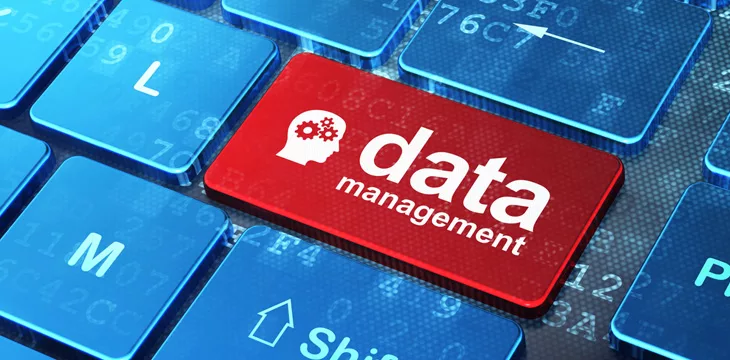Data sovereignty is one of the main benefits of blockchain technology, and a team led by the University of Rovira i Virgili (URV) in Spain has developed an innovative application showcasing how this can work with personal data online.
Want a cookie?
Cookies are all too familiar to internet users. Every website has banners and popups asking us to accept them. However, few of us know what rights we have related to our data, and even fewer understand where the data goes or what is done with it. Accepting cookies also creates security vulnerabilities.
The Rovira i Virgili team developed a personal data management tool based on blockchain technology to help manage these risks. It involves publishing smart contracts that are published for life and which cannot be amended.
The application, which is installed as a browser plugin, intercepts requests for consent and responds with the users’ preferences. A mobile app also allows them to manage and control these requests, keep track of who has them, and monitor their use.
This is a fine example of the transparency blockchain technology creates and how it can empower users to own or at least have proper control over their data.
A data revolution
The URV cookie app is but one example of how a scalable utility blockchain like BSV can be used to create a data revolution. They will impact how we collect, store, and interact with data in ways as yet unimaginable to most onlookers.
Blockchains will allow us to track and trace every data transfer between parties. The immutable nature of the ledger will enable us to see who held what, where, and when, as well as any alternations that may have occurred along the way. This will profoundly impact data provenance and integrity. Applications like Sentinel Node show how changes to files on a security network can be instantly detected using the blockchain.
There are various vulnerabilities around data storage and transfer that blockchains fix, too. The distributed nature of scalable utility blockchains means there’s no single point of failure, such as a server, that can be hacked, taken down, or wiped. Data will be safely stored on multiple nodes and transmitted using secure cryptographic protocols.
Smart contracts can revolutionize much more than just cookie consent. They can manage agreements of any kind, enforcing and executing the terms of a contract when predefined conditions are met. For example, users could consent that data is stored for a specific length of time before it is deleted or that they receive a payment each time it is shared or utilized commercially.
Blockchains also change the power dynamics around data ownership and monetization. Today, large firms like Meta (NASDAQ: META) and X can dictate terms to users, peer-to-peer transactions can eliminate data-snooping middlemen, and blockchain-based apps can allow users to control both what data they share and what is done with it when they do so.
The University of Rovira i Virgili web app is an excellent example of how blockchain technology empowers users by changing our relationship with data. Many other such applications will follow in the years and decades to come, but their success depends entirely on a scalable blockchain with near-zero fees like BSV.
Watch: Unleashing data rebellion—How Web3 is reshaping the Internet
New to blockchain? Check out CoinGeek’s Blockchain for Beginners section, the ultimate resource guide to learn more about blockchain technology.


